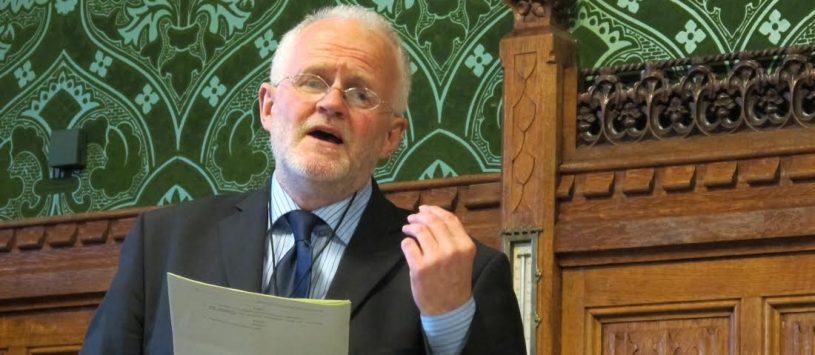The National Health Service (Amended Duties and Powers) Bill received its second reading last Friday in the House of Commons.
One of the issues that has arisen is whether it would re-establish the legal duty of the Secretary of State to provide key health services – a major controversy during the passage of the 2012 Health and Social Care Act. Professor Allyson Pollock, barrister Peter Roderick and David Price have said that it does not, see their statement here.
Peter Roderick clashed with Clive Efford MP, the Bill’s promoter on Friday, 21 November – see his account here.
On Monday 24 November, Mr Efford put David Lock QC’s advice on his website, maintaining that the duty would be restored. This advice is here.
Peter Roderick has written to Mr Efford asking for a further explanation, as it clearly does not. Below is his letter.
24 November 2014
Dear Mr Efford,
Thank you for putting the advice of Mr David Lock QC on your website and for directing us to it: ‘Secretary of State’s duty to promote a comprehensive health service’ http://www.cliveefford.org.uk/promoting#_ftn1
I think it is an excellent overview of the legal position – except on the key point of disagreement between us last Friday. (Or perhaps on another point as well, but I wish to focus here on the one which is not a matter of legal argument.)
He writes in paragraph 20:
“Clause 3 of the National Health Service (Amended Duties and Powers) Bill restores the wording of section 3(1) in the 2006 Act. Thus if the present Bill is passed, the Secretary of State would re-acquire the legal duty to provide acute services to NHS patients to meet all reasonable requirements.”
Section 3(1) of the 2006 Act before 2012, as he sets out, opens as follows:
“The Secretary of State must provide throughout England, to such extent as he considers necessary to meet all reasonable requirements—[the listed services]”
The relevant part of Clause 3 of your Bill reads as follows:
“The Secretary of State must arrange for the provision of the following to such extent as he considers necessary to meet all reasonable requirements— [the listed services]”
It can be seen that the duty to provide throughout England has been changed to a duty to arrange provision, and the words ‘throughout England’ have been dropped; ‘arrange provision’ means ‘to commission’.
I am perplexed as to why Mr Lock states that Clause 3 restores the wording of section 3(1), and that the Secretary of State would re-acquire the legal duty to provide the relevant services. It clearly doesn’t.
Would you be able to ask him if he can explain?
Many thanks,
Peter Roderick
